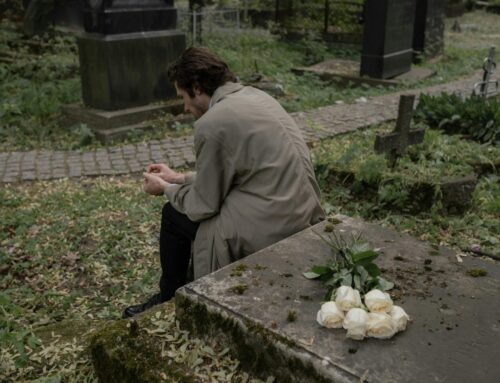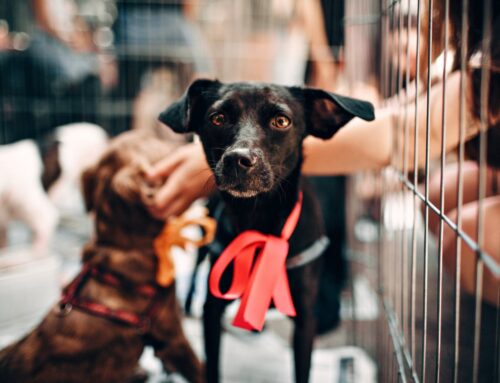When your pet dies, you will inevitably find yourself going through an emotionally profound and often bewildering experience. The bond between humans and their animal companions is a unique and profound one, making coping with pet loss a significant and challenging aspect of pet ownership.
The Unique Bond Between Humans and Pets
The relationship between a pet and its owner is a captivating enigma. Pets transcend the label of “just animals” to become integral family members. Their steadfast companionship, loyalty, and complete affection elevate them to beloved life partners. This connection is a testament to the depth of human-animal relationships.
The Emotional Impact of Losing a Cherished Companion
The loss of a pet is not just the absence of an animal companion; it represents the void left by the absence of an emotional anchor. It’s not just about missing their physical presence; it’s the daily routines, the shared moments, and the unique role they played in our lives. The emotional impact of pet loss is profound, resulting in an overwhelming sense of sorrow.
The emotions that accompany pet loss are as complex as the bond itself. Grief is a multifaceted journey, and it unfolds in stages, each with its unique complexities.
Shock and Denial After the Loss of a Pet
The initial response to pet loss often involves a sense of disbelief and denial. It’s as if you are suspended in time, waiting for your pet to return. This stage acts as a protective barrier, shielding you from the immediate pain of loss.
Pet Loss: Pain and Guilt
As the shock begins to fade, the harsh reality of the loss sets in. Overwhelming sadness and emptiness take hold. It is common to grapple with guilt during this stage, questioning whether you could have done more. Keep in mind that your actions as a pet owner are driven by love and care.
Anger and Bargaining During Pet Grief
The next phases involve anger and bargaining. Frustration simmers beneath the surface, aimed at the universe or fate. It is an intense and complex stage, but it is part of the grieving process.
Depression and Loneliness After Losing a Pet
Depression is a natural response to pet loss. Profound sadness and a sense of loneliness become constant companions. The routines centered around your pet may exacerbate the feeling of emptiness.
Acceptance and Healing After Pet Loss
With time, grief gradually gives way to acceptance and healing. While the pain never entirely vanishes, individuals find ways to carry their pet’s memory and adapt to life without them. Healing does not mean forgetting; it signifies a return to a sense of normalcy while cherishing the memories.
Understanding Your Emotions While Dealing with the Loss of a Pet
Acknowledging and accepting the emotions at each stage of pet loss is crucial. Repressing these feelings can prolong the healing process.
The Importance of Acknowledging Your Feelings After Pet Loss
Recognizing and accepting the range of emotions accompanying pet loss is a critical step toward healing. It is natural to experience sadness, anger, and guilt. Allowing yourself to feel these emotions is essential for coming to terms with the loss.
Stages of Grief After the Loss of a Beloved Pet
Different stages of grief require distinct coping strategies. During the shock and denial phase, relying on a support system is essential. Friends, family, or online pet loss support groups provide valuable emotional sustenance. Sharing your feelings with those who have faced a similar loss can bring great comfort.
In the pain and guilt stage, finding ways to memorialize your pet’s memory can be therapeutic. Creating a special space in your home, planting a tree, or crafting a photo album can help you focus on the love and joy your pet brought into your life.
Navigating the anger and bargaining phase may require constructive outlets for your emotions. Engaging in physical activities or adopting new hobbies can assist in releasing pent-up energy and tension.
For the depression and loneliness stage, self-care is paramount. Maintain your physical and emotional well-being through daily exercise, a balanced diet, and sufficient rest. Dedicate moments to relaxation and self-reflection.
In the acceptance and healing stage, focus on creating a legacy for your pet. Sharing their story with others, volunteering at an animal shelter, or donating to pet-related charities can provide a sense of purpose and meaning.
The Duration of Grief with Pet Loss
It is vital to understand that grief does not adhere to a fixed timeline. The healing process is personal to each individual.
The Unpredictable Nature of Grief Duration with Pet Loss
Grief does not operate on a linear scale. Its intensity may ebb and flow over time, even years after your pet’s passing. This is entirely normal and does not indicate a lack of healing.
The Individual Journey of Grieving the Loss of a Pet
Each person’s experience of grief is distinct. There is no one-size-fits-all approach. What matters most is finding a personal way to honor your pet’s memory and navigate the healing process at your own pace.
Dealing with Pet Bereavement
While the grieving process is highly personal, there are universal coping mechanisms that can provide comfort during this challenging time.
Seeking Aid in Support for Pet Mourning
Leverage your support network. Friends and family provide invaluable emotional strength. Reflect on joining pet loss support groups. These forums enable you to share your sentiments with individuals who have faced a similar loss. This mutual understanding can be exceptionally comforting.
Honoring Your Pet as a Mechanism for Finding Comfort After Pet Loss
One of the most significant means to cope with pet loss is by honoring your pet’s memory. Construct a memorial that resonates with you. It could be a scrapbook, a garden in their memory, or a heartfelt letter. These actions do not only act as tributes but also allow you to focus on the love and joy your pet brought into your life.
Self-Care and Healing from the Loss of a Pet
Emphasize self-care during this testing period. Attend to your physical and emotional well-being through daily exercise, a balanced diet, and sufficient rest. Dedicate moments to relaxation and self-reflection.
The Role of Rituals in Mourning the Loss of a Pet
Rituals can play an essential role in the recuperation process. They offer a sensation of closure and provide a means to remember and commemorate your pet’s life.
Creating Healing Rituals to Deal with Pet Loss
Think about initiating a small ceremony or ritual to bid farewell to your pet. Lighting a candle, playing music you listened to together, or composing a letter to them are approaches to
commemorate their memory. These rituals can facilitate in finding closure and expressing your sentiments.
Finding Closure for Pet Loss Through Rituals
Rituals offer closure that is both touching and comforting. They supply a sense of finality to your pet’s life and offer a channel to navigate your emotions and bring a sense of peace.
The Influence on Other Pets While Coping with Pet Loss
If you have other pets, it is crucial to comprehend that they, too, may be grieving. Animals are intuitive and can detect the loss of a companion.
Understanding How Other Pets Grieve from Companion Pet Loss
Other pets in the household might become more introverted, display changed behavior, or even look for their absent companion. It is vital to be patient and deliver additional love and attention to these pets, as they are also encountering a loss.
Supplying Support to Surviving Pets During Pet Loss
Invest quality time with your surviving pets. Maintain their routines as much as possible, involve them in play, and offer an abundance of affection. This can help them grapple with the absence of their companion and deliver a feeling of security during this period of loss.
Professional Aid for Coping with Pet Loss
In some situations, pet owners might find the grieving process exceedingly challenging to navigate independently.
When to Pursue Professional Assistance for Pet Grief
If grief becomes overwhelming and interrupts everyday life, it might be time to seek aid from a therapist or counselor specialized in pet loss. They can supply guidance and support adjusted to your distinct needs.
Pet Loss Counseling
Pet loss counseling provides a structured and supportive ambiance for handling grief. Experts in this domain comprehend the unique nature of the bond between pets and their owners, allowing for a more efficient and compassionate approach to dealing with the emotional impact of pet loss.
Conclusion: Navigating the Elaborate Maze of Coping with Pet Loss
The loss of a pet is a profound and transformative occurrence. As pet owners, the connection we share with our animals is distinctive and enduring, marked by layers of intricate emotions. Coping with pet loss is a testimony to the depth of the human-animal bond and the complex journey of healing and acceptance. While their physical presence might be gone, the love and
memories you have will remain for an eternity. Coping with pet loss is a tribute to the multifaceted love that was and will forever be shared.




